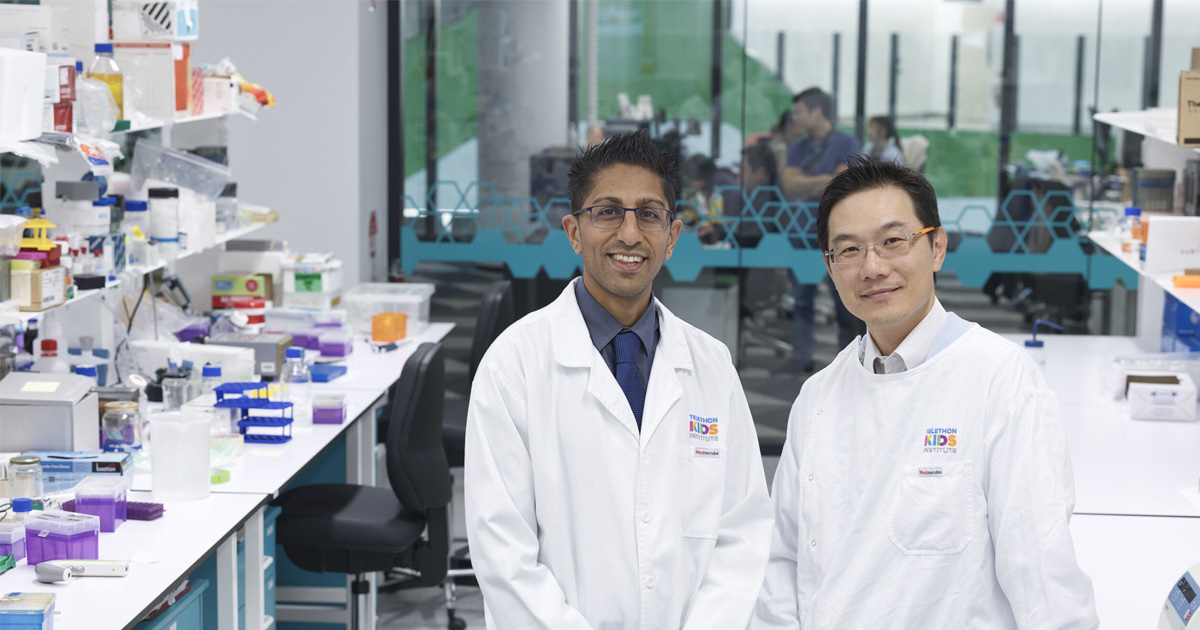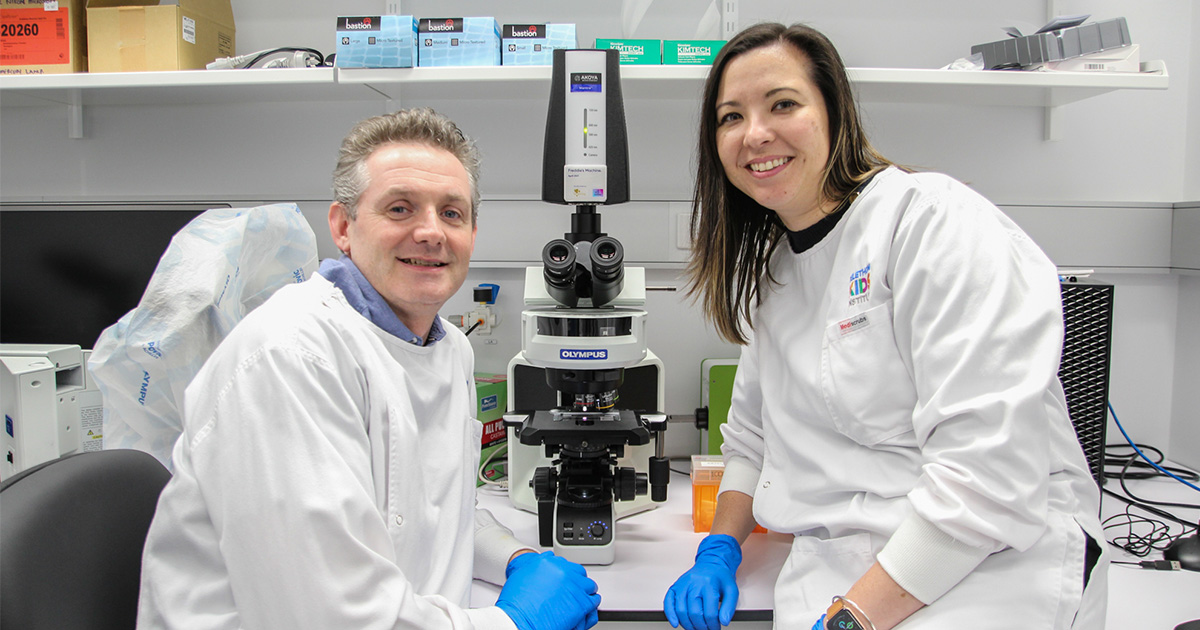Search
Research
Surfactant protein disorders in childhood interstitial lung diseaseSurfactant, which was first identified in the 1920s, is pivotal to lower the surface tension in alveoli of the lungs and helps to lower the work of breathing and prevents atelectasis. Surfactant proteins, such as surfactant protein B and surfactant protein C, contribute to function and stability of surfactant film.
Research
Weather and children's time allocationThis paper presents the first causal estimates of the effect of weather on children's time allocation. It exploits exogenous variations in local weather observed during the random diary dates of two nationally representative cohorts of Australian children whose time-use diaries were surveyed biennially over 10 years.
Research
Early Moves: a protocol for a population-based prospective cohort study to establish general movements as an early biomarker of cognitive impairment in infantsThe current diagnostic pathways for cognitive impairment rarely identify babies at risk before 2 years of age. Very early detection and timely targeted intervention has potential to improve outcomes for these children and support them to reach their full life potential. Early Moves aims to identify early biomarkers, including general movements (GMs), for babies at risk of cognitive impairment, allowing early intervention within critical developmental windows to enable these children to have the best possible start to life.
Research
The relationship between dog ownership, dog play, family dog walking, and pre-schooler social-emotional development: findings from the PLAYCE observational studyRegular physical activity provides children with health and developmental benefits. This study investigated if active play and walking with the family dog was associated with better social-emotional development in young children.
Research
Interpregnancy intervals and child development at age 5: A population data linkage studyTo investigate the associations between interpregnancy intervals (IPIs) and developmental vulnerability in children's first year of full-time school (age 5). A retrospective cohort study using logistic regression. ORs were estimated for associations with IPIs with adjustment for child, parent and community sociodemographic variables.
Research
The Milk Metabolome of Non-secretor and Lewis Negative MothersThe functional role of milk for the developing neonate is an area of great interest, and a significant amount of research has been done. However, a lot of work remains to fully understand the complexities of milk, and the variations imposed through genetics. It has previously been shown that both secretor (Se) and Lewis blood type (Le) status impacts the human milk oligosaccharide (HMO) content of human milk. While some studies have compared the non-HMO milk metabolome of Se+ and Se- women, none have reported on the non-HMO milk metabolome of Se- and Le- mothers.
Research
Pulmonary Gas Exchange Improves over the First Year in Preterm Infants with and without Bronchopulmonary DysplasiaRight shift of the peripheral oxyhaemoglobin saturation (SpO2) versus inspired oxygen pressure (PIO2) curve is a sensitive marker of pulmonary gas exchange. The aim of this study was to assess the impact of prematurity and bronchopulmonary dysplasia (BPD) on gas exchange and right-to-left shunt in the neonatal period, and its evolution over the first year of life.
Research
Maternal haemoglobin levels in pregnancy and child DNA methylation: a study in the pregnancy and childhood epigenetics consortiumAltered maternal haemoglobin levels during pregnancy are associated with pre-clinical and clinical conditions affecting the fetus. Evidence from animal models suggests that these associations may be partially explained by differential DNA methylation in the newborn with possible long-term consequences. To test this in humans, we meta-analyzed the epigenome-wide associations of maternal haemoglobin levels during pregnancy with offspring DNA methylation in 3,967 newborn cord blood and 1,534 children and 1,962 adolescent whole-blood samples derived from 10 cohorts.
Research
Trajectories of interparental conflict and children's emotional-behavioural functioning at 10-11 years: an Australian population-based studyInterparental conflict (IPC) has the potential to adversely affect children's social, emotional, and behavioural functioning. The overall objective of this study was to investigate the relationship between both the severity and chronicity of IPC across early and middle childhood and children's emotional-behavioural functioning at 10-11 years. Specifically, we aimed to: (1) identify distinct trajectories of IPC spanning 10-11 years since birth of the study child as reported by mothers, and (2) examine the emotional-behavioural functioning of children exposed to the identified IPC trajectories.
Research
BAL Inflammatory Markers Can Predict Pulmonary Exacerbations in Children With Cystic FibrosisPulmonary exacerbations in cystic fibrosis are characterized by airway inflammation and may cause irreversible lung damage. Early identification of such exacerbations may facilitate early initiation of treatment, thereby potentially reducing long-term morbidity. Research question: Is it possible to predict pulmonary exacerbations in children with cystic fibrosis, using inflammatory markers obtained from BAL fluid?
Research
Contemporary survival endpoints: An international diffuse intrinsic pontine glioma registry studyThis study defines PFS and OS, and is the first describe post-progression survival in a large cohort of children with DIPG.
Research
A Phase I Study of the CDK4/6 Inhibitor Ribociclib (LEE011) in Pediatric Patients with Malignant Rhabdoid Tumors, Neuroblastoma, and Other Solid TumorsIn this. i study the MTD and RP2D, safety, PK, and preliminary activity of single-agent ribociclib were investigated in patients with neuroblastoma.
Research
High expression of connective tissue growth factor accelerates dissemination of leukaemiaFunctional role of CTGF in altering disease progression in a lymphoid malignancy
Research
Heterogeneity in mechanisms of emergent resistance in pediatric T-cell acute lymphoblastic leukemiaBiological changes associated with T-ALL relapse and resistance are stochastic and highly individual
Research
CCI-007, a novel small molecule with cytotoxic activity against infant leukemia with MLL rearrangementsIdentified CCI-007 as a novel small molecule that displays rapid toxicity towards a subset of MLL-r, CALM-AF10 and SET-NUP214 leukemia cell lines

News & Events
New study uncovers dual benefit of bone-protecting treatment for childhood leukaemiaA groundbreaking study from cancer researchers at The Kids Research Institute Australia has identified a promising new therapeutic strategy for children battling the most common childhood cancer – B-cell acute lymphoblastic leukaemia.

News & Events
Finding new treatments for rare brain cancers in infantsThe WA Kids Cancer Centre has secured $1.1 million in funding from the Medical Research Future Fund’s (MRFF) Paediatric Brain Cancer Research Stream 2 to develop more effective and less toxic treatments for rare brain cancers in infants.
